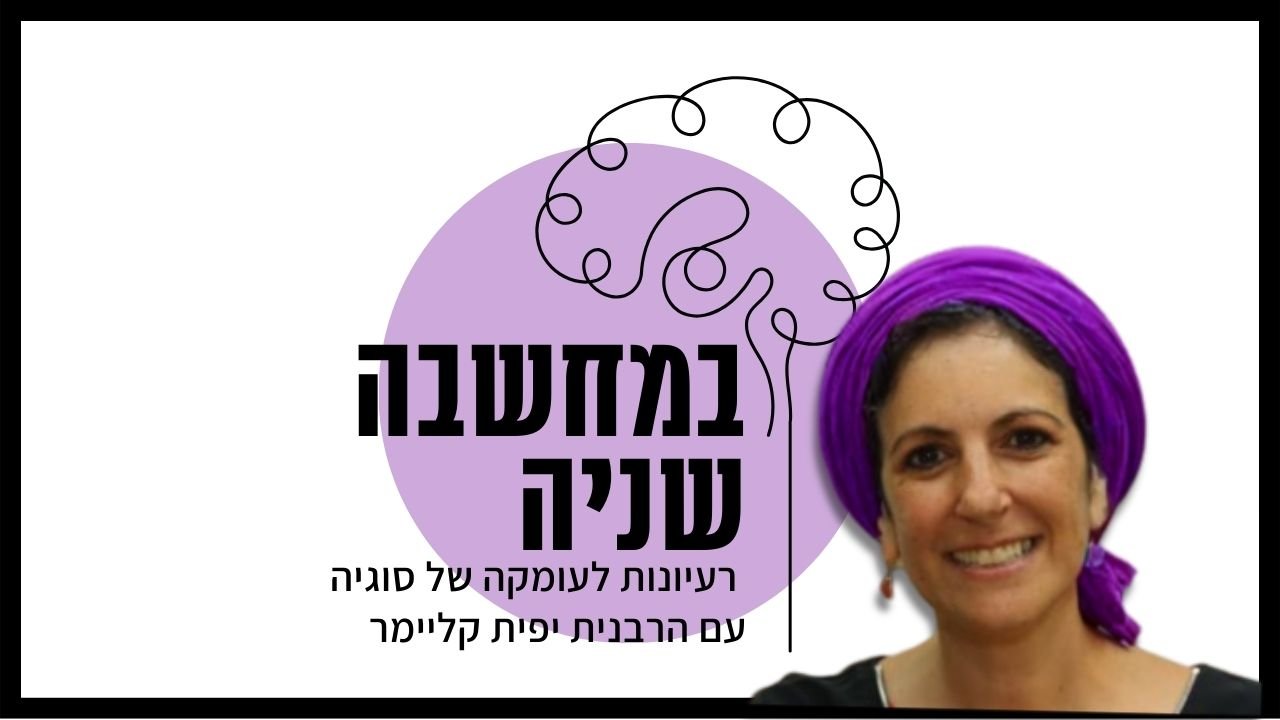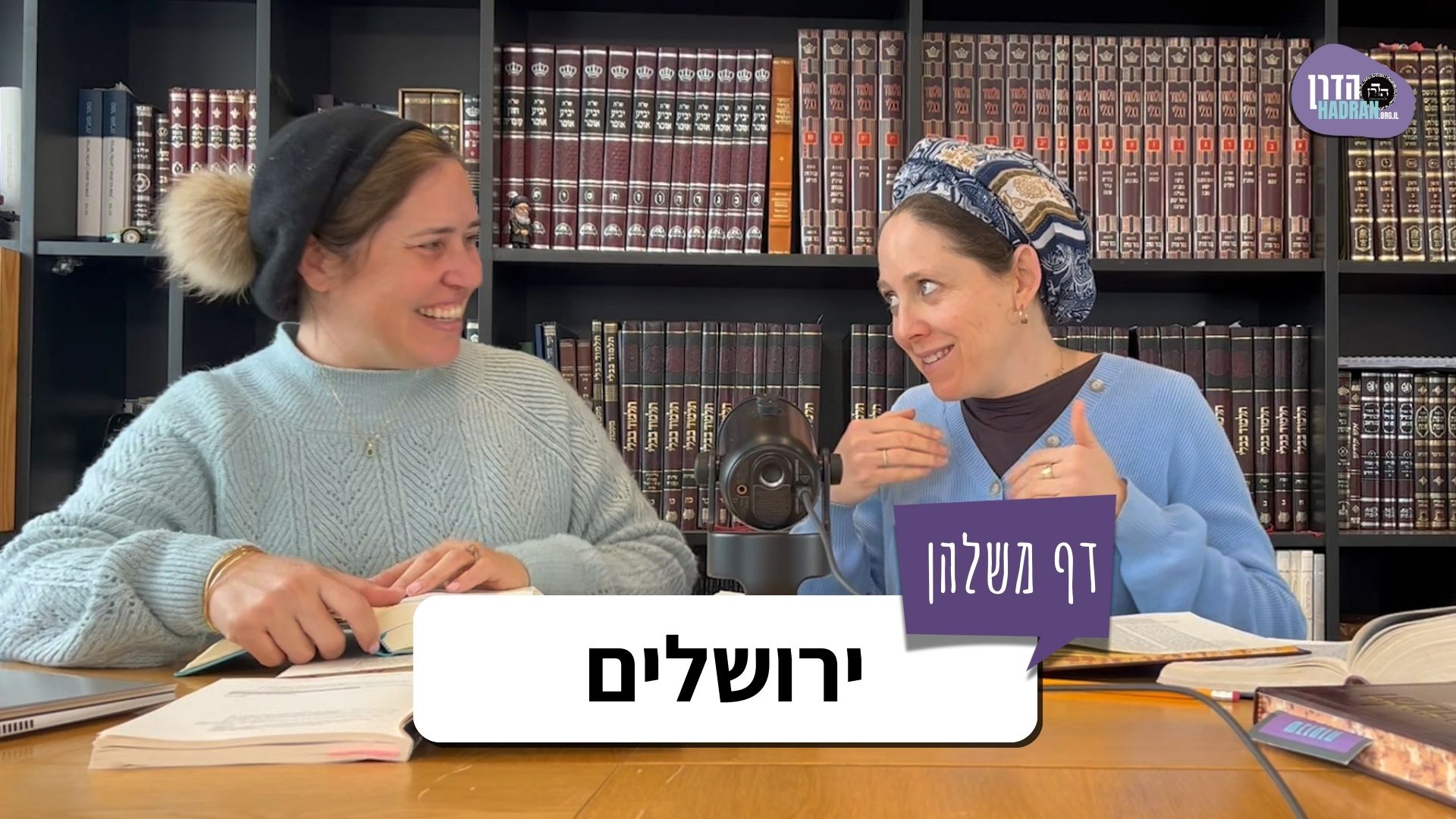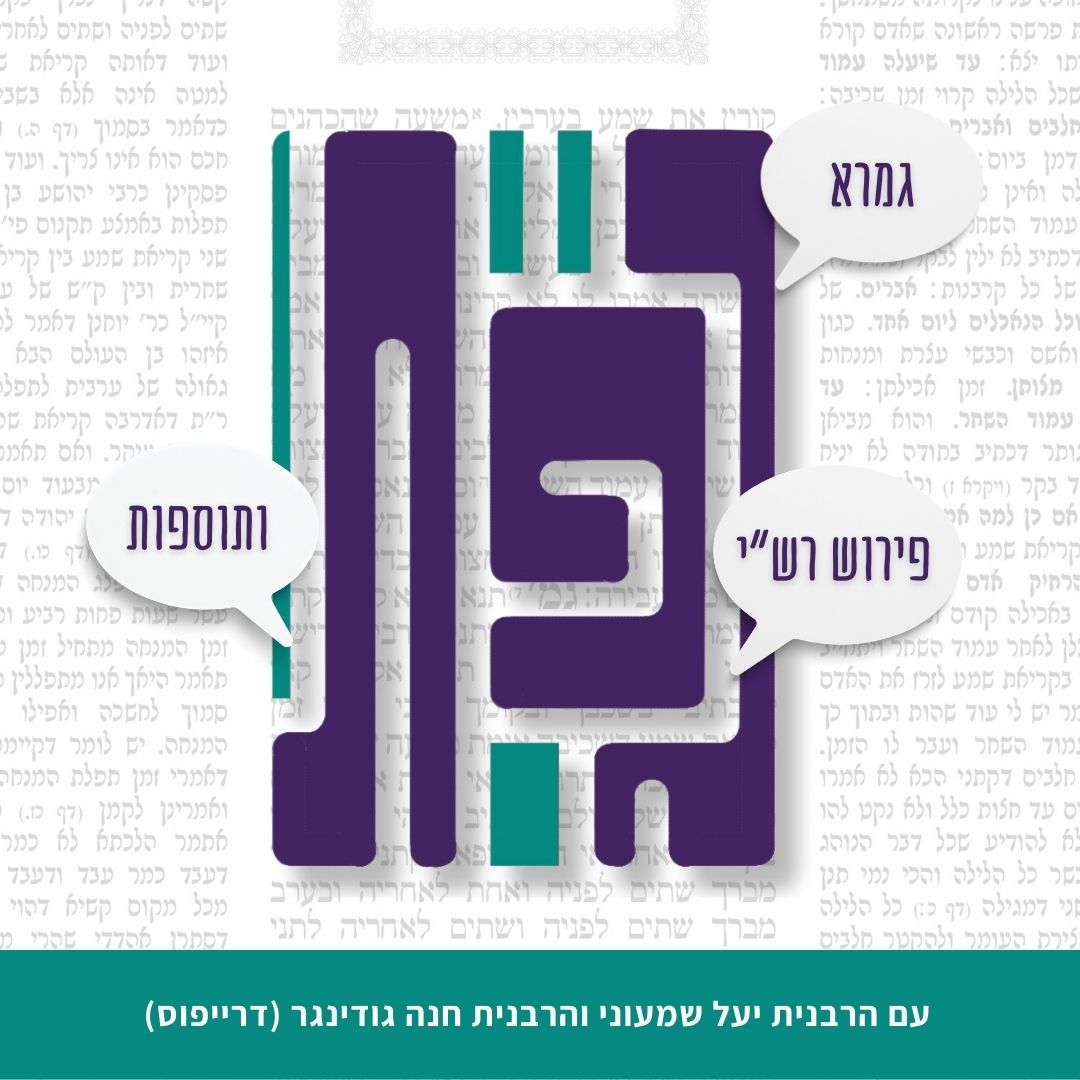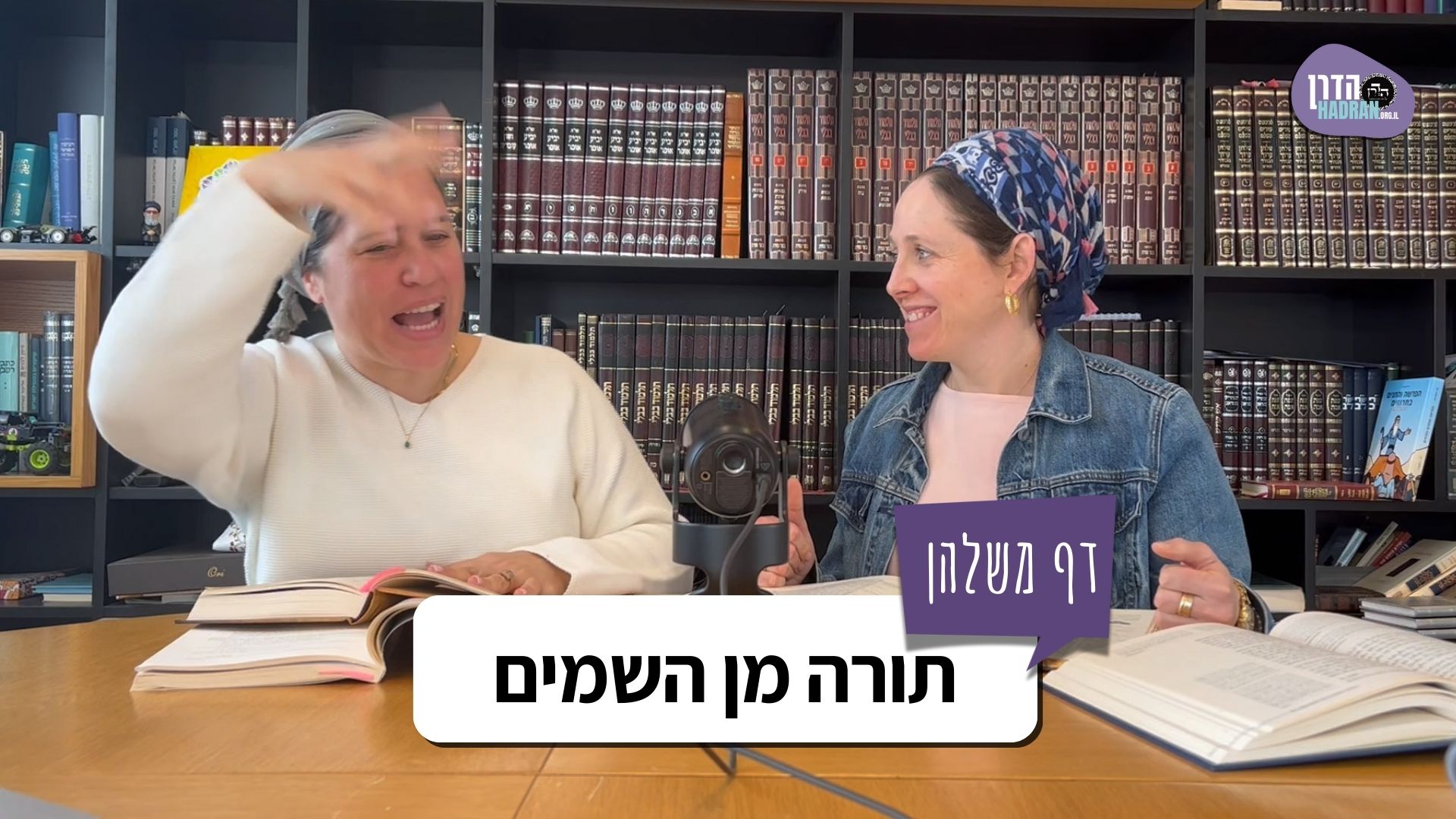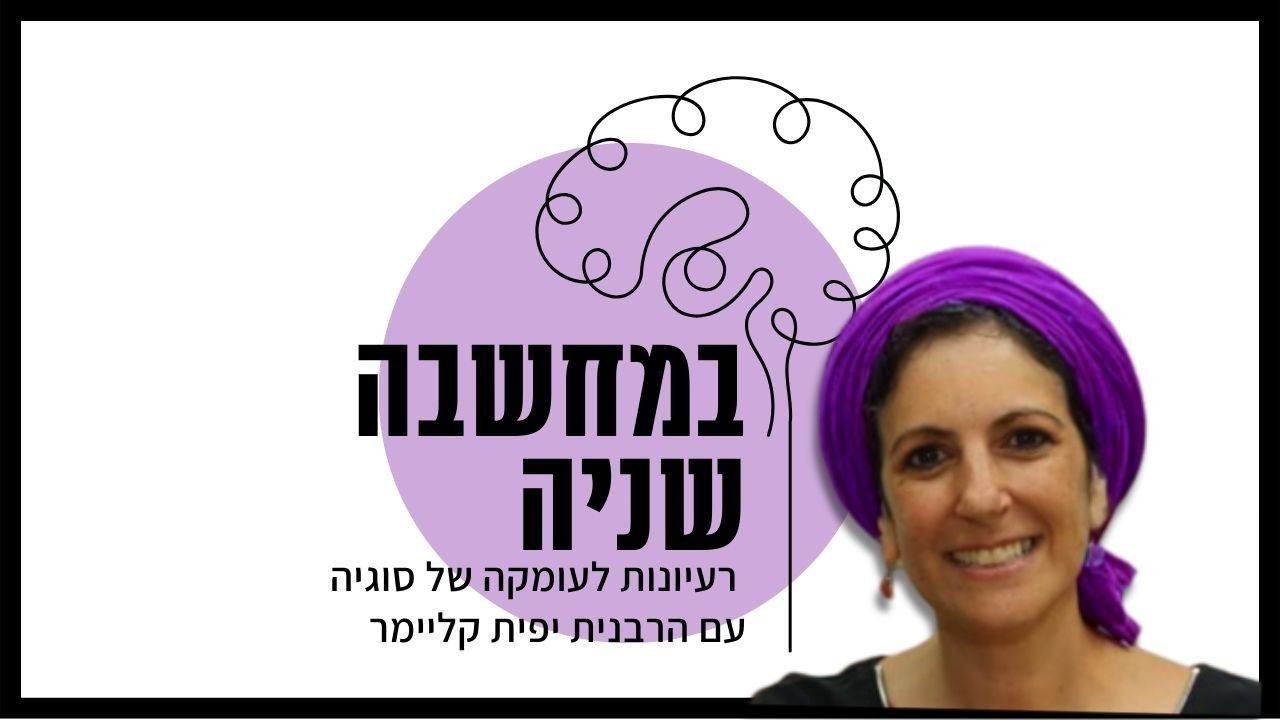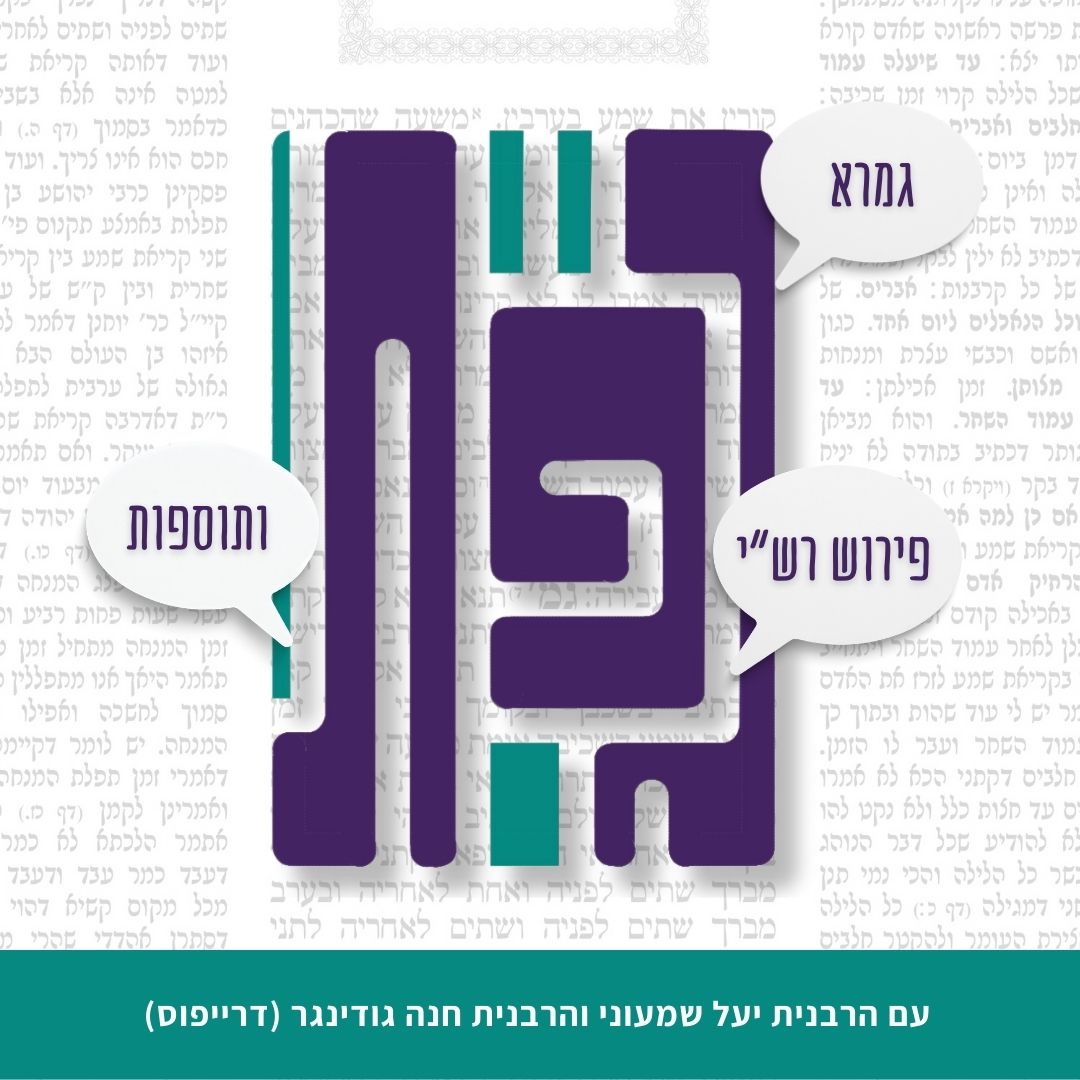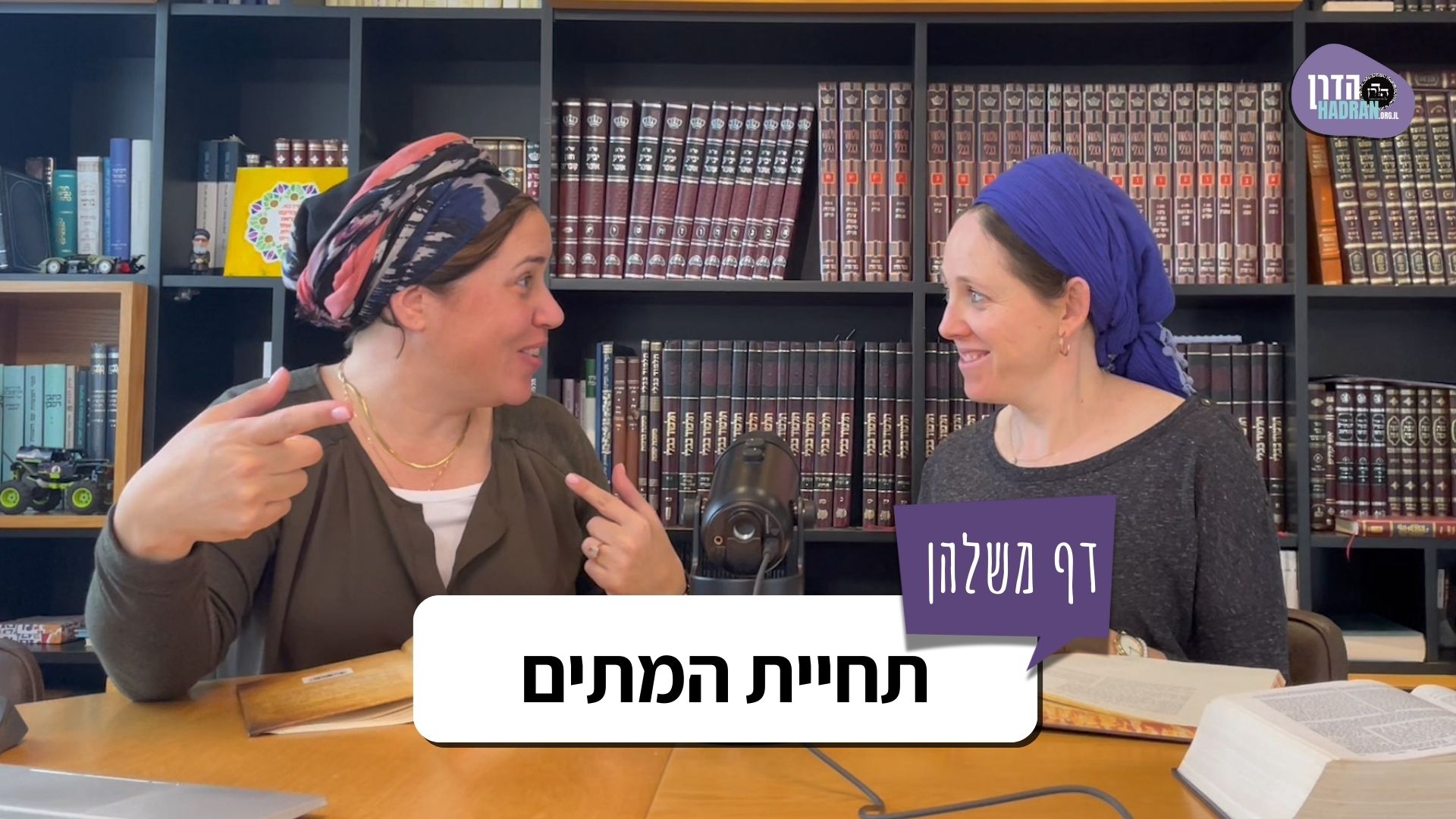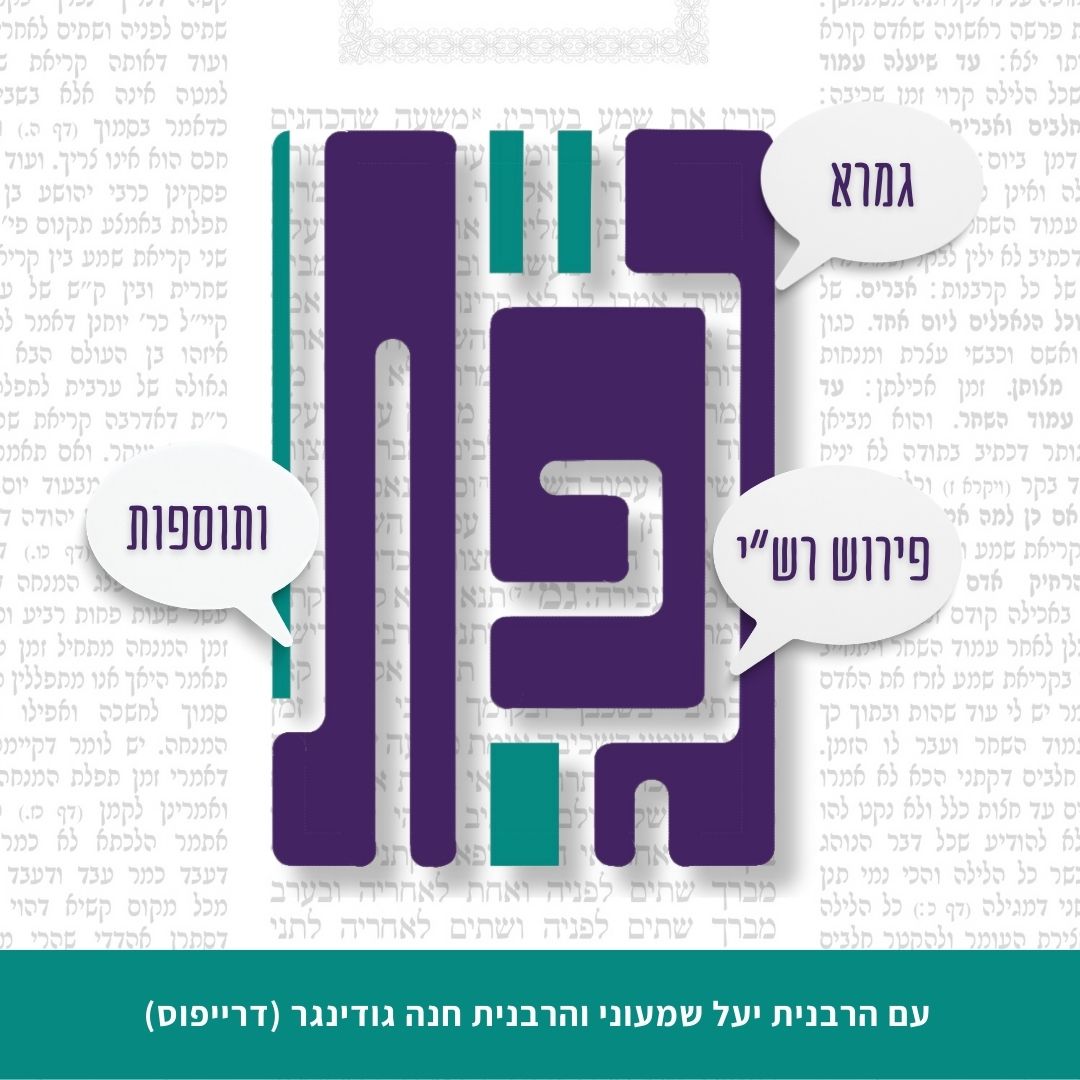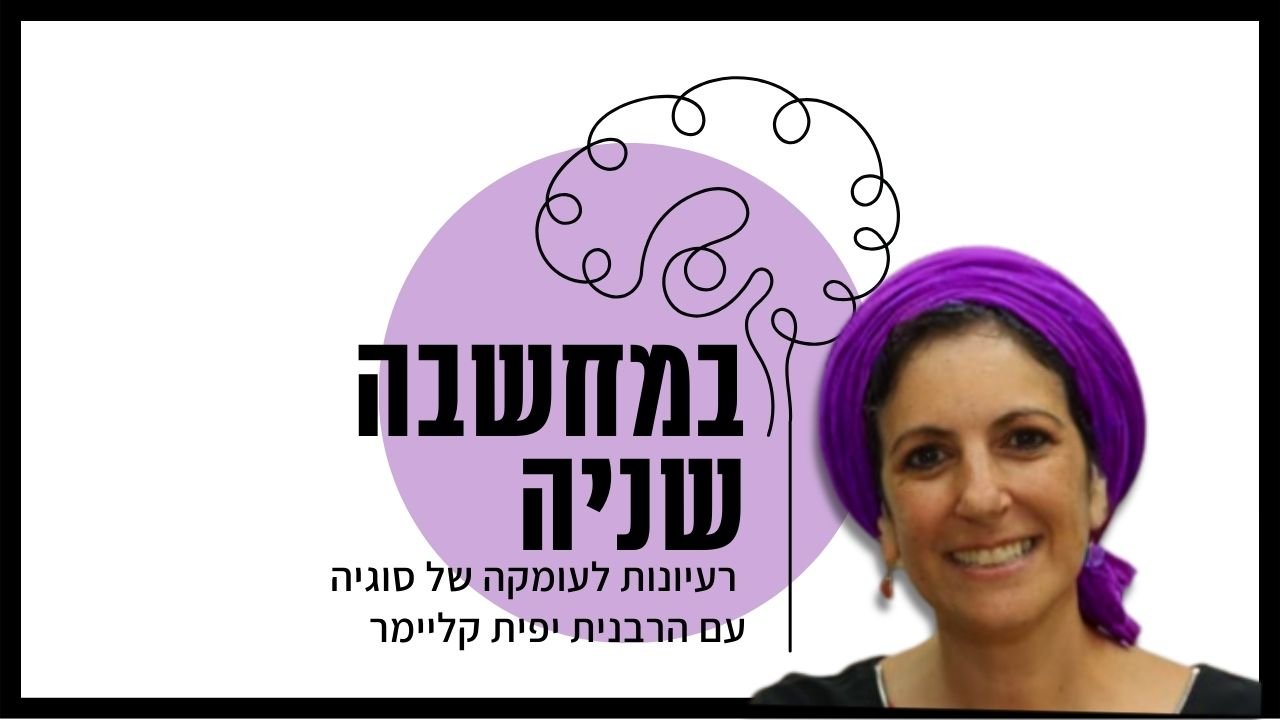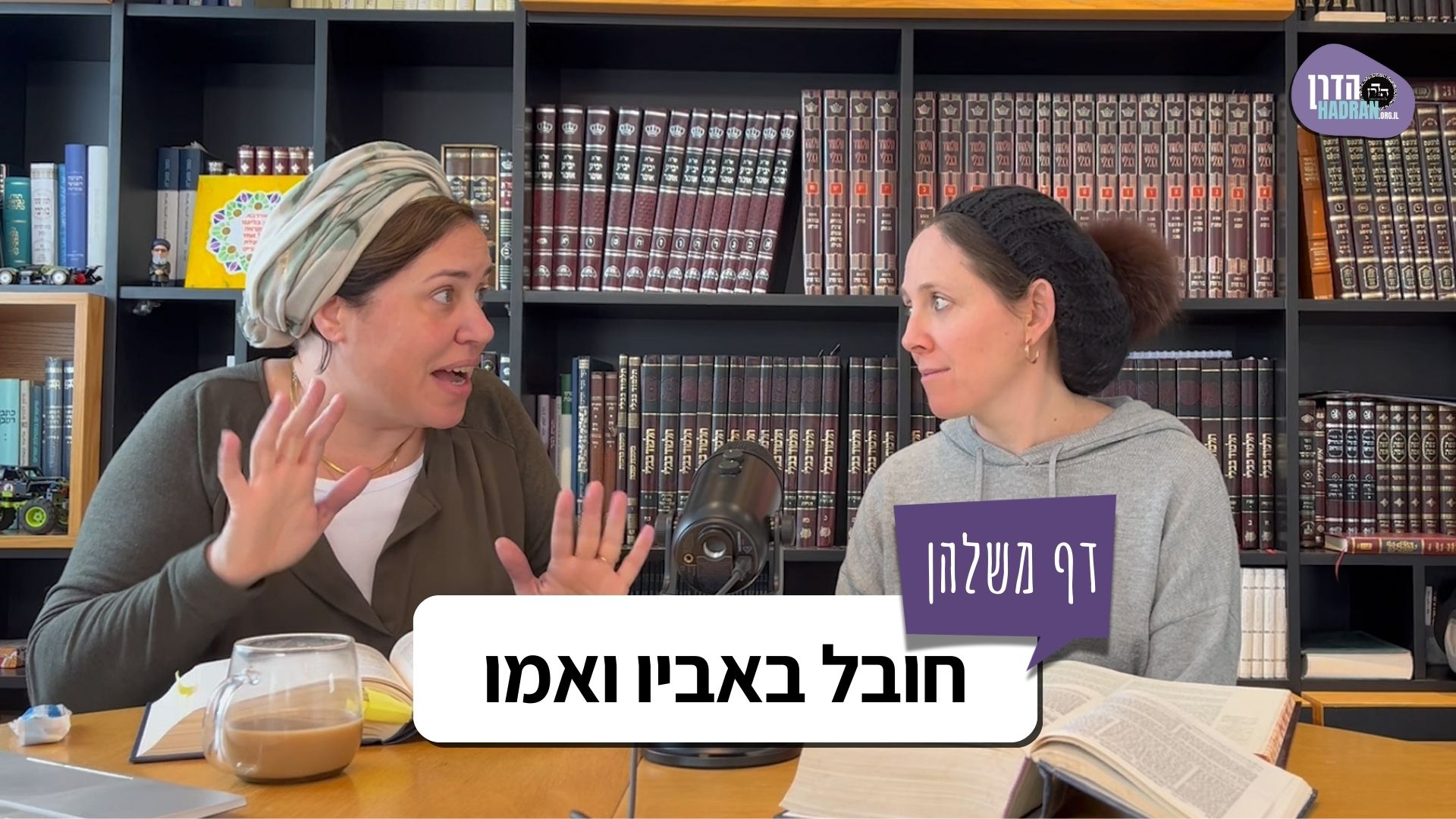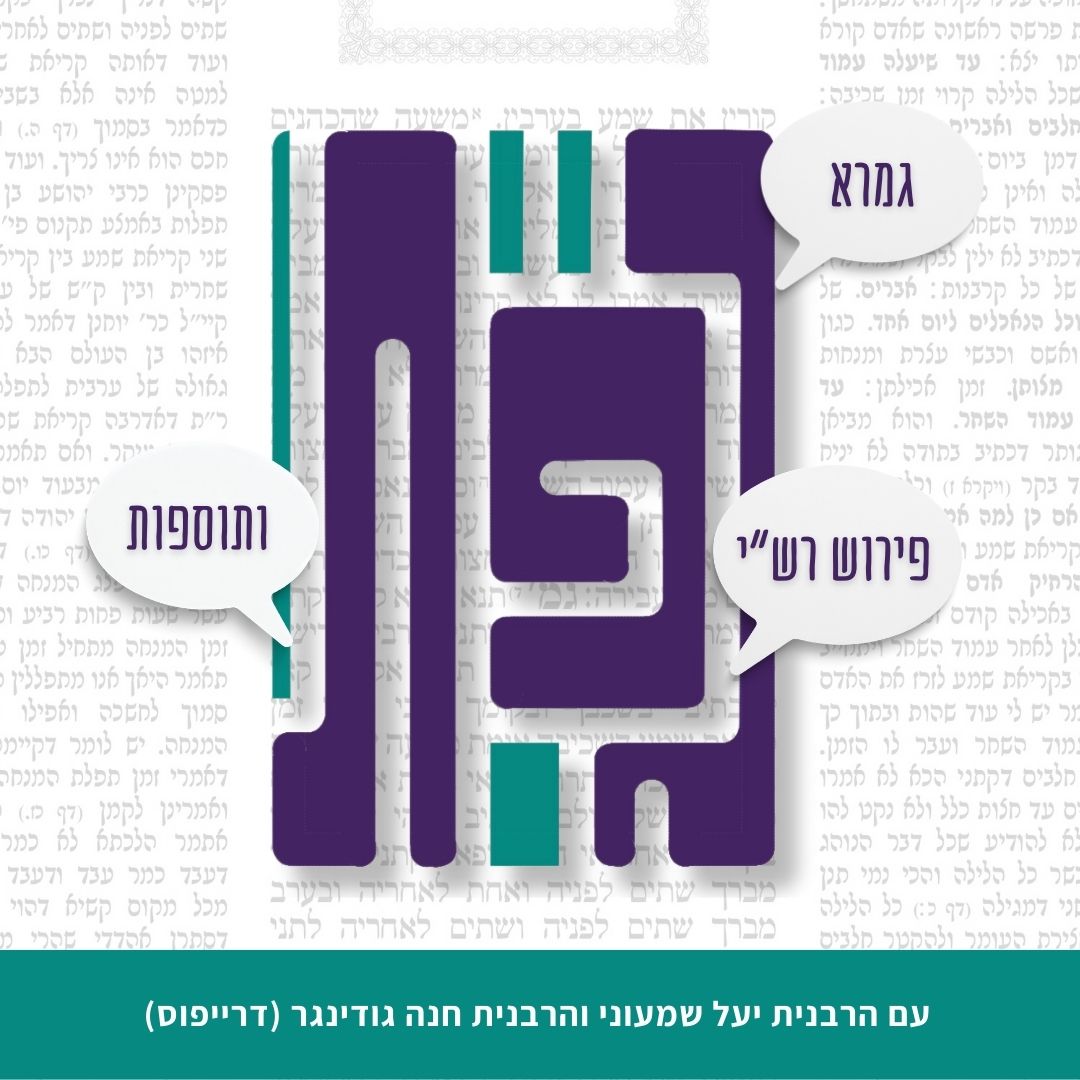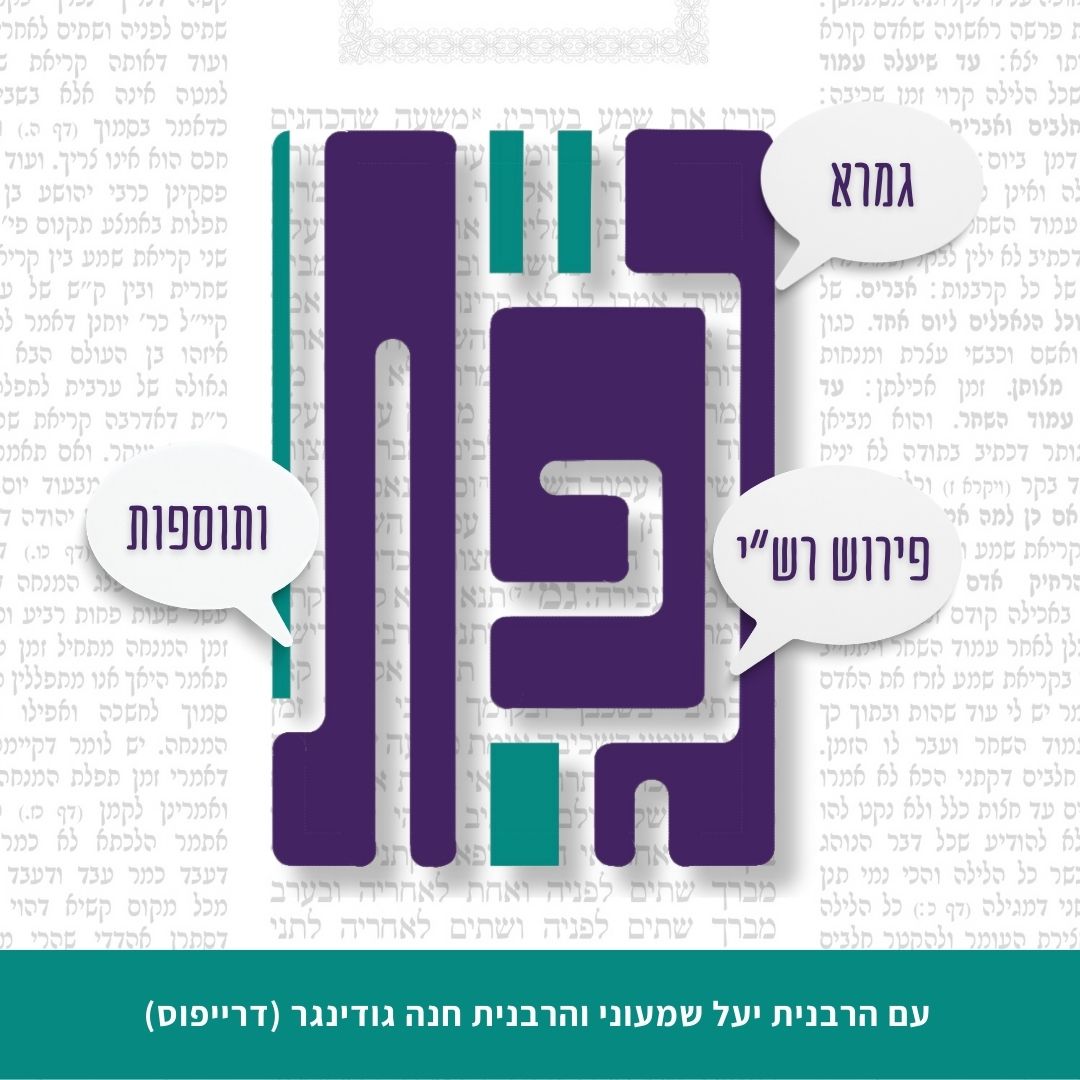סנהדרין ז
מִצְוָה לְמֵימְרָא לְהוּ: אִי דִּינָא בָּעֵיתוּ, אִי פְּשָׁרָה בָּעֵיתוּ? הַיְינוּ תַּנָּא קַמָּא! אִיכָּא בֵּינַיְיהוּ מִצְוָה: רַבִּי יְהוֹשֻׁעַ בֶּן קׇרְחָה סָבַר מִצְוָה, תַּנָּא קַמָּא סָבַר רְשׁוּת.
He means that it is a mitzva to say to them: Do you want a strict judgment, or do you want a compromise? The Gemara objects: Since this opinion is the same as that of the first tanna, who also allows compromise, it is redundant to teach it. The Gemara answers: There is a difference between them with regard to the question of whether it is a mitzva to arrange a compromise. Rabbi Yehoshua ben Korḥa holds that it is a mitzva to offer them the option of compromise, and the first tanna holds that it is merely permitted.
הַיְינוּ דְּרַבִּי שִׁמְעוֹן בֶּן מְנַסְיָא? אִיכָּא בֵּינַיְיהוּ: מִשֶּׁתִּשְׁמַע דִּבְרֵיהֶן וְאַתָּה יוֹדֵעַ לְהֵיכָן הַדִּין נוֹטֶה, אִי אַתָּה רַשַּׁאי לוֹמַר לָהֶן ״צְאוּ וּבִצְעוּ״.
The Gemara objects: If so, the opinion of the first tanna is the same as that of Rabbi Shimon ben Menasya. The Gemara answers that there is a difference between them with regard to the principle: After you hear their statements and you know where the judgment is leaning, it is not permitted for you to say to them: Go out and mediate. In that instance, the first tanna holds that it is still not too late to suggest mediation.
וּפְלִיגָא דְּרַבִּי תַּנְחוּם בַּר חֲנִילַאי, דְּאָמַר רַבִּי תַּנְחוּם בַּר חֲנִילַאי: לֹא נֶאֱמַר מִקְרָא זֶה אֶלָּא כְּנֶגֶד מַעֲשֵׂה הָעֵגֶל, שֶׁנֶּאֱמַר: ״וַיַּרְא אַהֲרֹן וַיִּבֶן מִזְבֵּחַ לְפָנָיו״. מָה רָאָה? אָמַר רַבִּי בִּנְיָמִין בַּר יֶפֶת אָמַר רַבִּי אֶלְעָזָר: רָאָה חוּר שֶׁזָּבוּחַ לְפָנָיו.
§ And the various Sages who offered interpretations of the verse: “And the covetous blesses himself, though he despises the Lord” (Psalms 10:3), disagree with the explanation of Rabbi Tanḥum bar Ḥanilai. As Rabbi Tanḥum bar Ḥanilai says: This verse was stated only with regard to the incident of the Golden Calf, as it is stated: “And Aaron saw this, and he built [vayyiven] an altar [mizbe’aḥ] before it…and said: Tomorrow shall be a feast to the Lord” (Exodus 32:5). What did Aaron see? Rabbi Binyamin bar Yefet says that Rabbi Elazar says: He saw Hur, who had been appointed together with Aaron by Moses to lead the people during Moses’ absence (see Exodus 24:14), slaughtered before him, as he had protested the plan to fashion a calf and had been murdered by the people as a result. The verse is therefore interpreted not as: Aaron built an altar before the calf, but rather: He understood [vayyaven] from the slaughter [mizavuaḥ] before his own eyes; and he then called for a feast.
אָמַר: אִי לָא שָׁמַעְנָא לְהוּ הַשְׁתָּא, עָבְדוּ לִי כְּדַעֲבַדוּ בְּחוּר, וּמִיקַּיַים בִּי ״אִם יֵהָרֵג בְּמִקְדַּשׁ ה׳ כֹּהֵן וְנָבִיא״, וְלָא הָוְיָא לְהוּ תַּקַּנְתָּא לְעוֹלָם. מוּטָב דְּלִיעְבְּדוּ לְעֵגֶל, אֶפְשָׁר הָוְיָא לְהוּ תַּקַּנְתָּא בִּתְשׁוּבָה.
Aaron said to himself: If I do not listen to them now, they will do to me as they did to Hur, and the verse: “Shall the priest and the prophet be slain in the sanctuary of the Lord?” (Lamentations 2:20), will be fulfilled through me, and they will never have a remedy for such a sin. It is better for them to worship the calf, as it is possible they will have a remedy through repentance. Nevertheless, according to Rabbi Tanḥum bar Ḥanilai, whoever praises Aaron for this compromise is provoking God.
וְהָנֵי תַּנָּאֵי ״פּוֹטֵר מַיִם רֵאשִׁית מָדוֹן״, מַאי דָּרְשִׁי בֵּיהּ? כִּדְרַב הַמְנוּנָא, דְּאָמַר רַב הַמְנוּנָא: אֵין תְּחִילַּת דִּינוֹ שֶׁל אָדָם נִידּוֹן אֶלָּא עַל דִּבְרֵי תוֹרָה, שֶׁנֶּאֱמַר: ״פּוֹטֵר מַיִם רֵאשִׁית מָדוֹן״. אָמַר רַב הוּנָא: הַאי תִּיגְרָא דָּמְיָא לְצִינּוֹרָא דְּבִידְקָא (דְּמַיָּא), כֵּיוָן דְּרָוַוח – רָוַוח.
And with regard to those tanna’im who did not interpret the verse: “The beginning of strife is as when one releases water” (Proverbs 17:14), with regard to compromise, what do they derive from this verse? They understand the verse in accordance with the opinion of Rav Hamnuna, as Rav Hamnuna says: The beginning of a person’s judgment after he dies is that he is judged only concerning matters of Torah, as it is stated: “The beginning of strife is as when one releases water.” Based on this verse, Rav Huna says: This quarrel between people is comparable to a split in a hose caused by a burst of water, emptying into a field; once the split in the hose widens, it widens even more and can no longer be repaired. To save the field, the hose must be repaired as soon as it splits. The same is true with regard to a quarrel; it must be stopped as soon as it begins.
אַבָּיֵי קַשִּׁישָׁא אָמַר: דָּמֵי לְגוּדָּא דְּגַמְלָא, כֵּיוָן דְּקָם – קָם.
Abaye the Elder makes a similar point with a different metaphor, and says: A quarrel is comparable to a board in a wooden bridge. Once it has stood in its place and been stabilized, it continues to stand and becomes ever more rigid and stable. Consequently, the best time to address and end the dispute is at the very beginning.
שִׁמְעִי וּשְׁתֵּי שֶׁבַע זְמִירוֹת הוּא, סִימָן.
§ Apropos the previous discussion, the Gemara recounts several incidents in which passersby recited popular proverbs. Shimi ushti, sheva zemirot hu is a mnemonic device for these incidents.
הָהוּא דַּהֲוָה קָאָמַר וְאָזֵיל: טוּבֵיהּ דְּשָׁמַע וְאָדֵישׁ, חַלְפוּהּ בִּישָׁתֵיהּ מְאָה. אֲמַר לֵיהּ שְׁמוּאֵל לְרַב יְהוּדָה, קְרָא כְּתִיב: ״פּוֹטֵר מַיִם רֵאשִׁית מָדוֹן״ – רֵישׁ מְאָה דִּינֵי.
There was a certain man who was saying as he walked: It is good for a person who hears statements said against him and yet remains silent, as a hundred misfortunes pass him by as a result. Upon hearing this, Shmuel said to Rav Yehuda: A verse is written that conveys the message of this aphorism: “The beginning of strife is as when one releases water” (Proverbs 17:14). The words “beginning [poter] of strife [reishit madon]” allude to: The beginning of one hundred litigations [reish me’a dinei]. Troubles are avoided if one overlooks and excuses [poter] an offense.
הָהוּא דַּהֲוָה קָאָמַר וְאָזֵיל: אַתַּרְתֵּי תְּלָת גַּנָּבָא לָא מִיקְּטַל. אֲמַר לֵיהּ שְׁמוּאֵל לְרַב יְהוּדָה, קְרָא כְּתִיב: ״כֹּה אָמַר ה׳ עַל שְׁלֹשָׁה פִּשְׁעֵי יִשְׂרָאֵל וְעַל אַרְבָּעָה לֹא אֲשִׁיבֶנּוּ״.
There was a certain man who was saying as he walked by: For only two or three thefts, the thief is not executed by the heavenly court. Shmuel said to Rav Yehuda: A verse is written that conveys the message of this aphorism: “So says the Lord: For three transgressions of Israel, or for four, I will not repay it” (Amos 2:6). Shmuel interprets the verse rhetorically, as if saying: Will I not repay the fourth offense? Accordingly, before the fourth offense, it is still possible to rectify the sins.
הָהוּא דַּהֲוָה קָאָמַר וְאָזֵיל: שַׁב בֵּירֵי לִשְׁלָמָנָא, וַחֲדָא לְעָבֵיד בִּישׁ. אֲמַר לֵיהּ שְׁמוּאֵל לְרַב יְהוּדָה, קְרָא כְּתִיב: ״כִּי שֶׁבַע יִפּוֹל צַדִּיק וָקָם וְרָשָׁע יִפּוֹל בְּאַחַת״.
There was a certain man who was saying as he walked: Seven pits are dug for the man of peace, and he escapes all of them, and one pit is dug for the evildoer, and he cannot escape it. Shmuel said to Rav Yehuda: A verse is written that conveys the message of this aphorism: “For a righteous man falls seven times, and rises up again, but the wicked shall fall at once” (see Proverbs 24:16, 28:18).
הָהוּא דַּהֲוָה קָאָמַר וְאָזֵיל: דְּאָזֵיל מִבֵּי דִינָא שְׁקִל גְּלִימָא – לִיזַמַּר זְמָר וְלֵיזִיל בְּאוֹרְחָא. אֲמַר לֵיהּ שְׁמוּאֵל לְרַב יְהוּדָה, קְרָא כְּתִיב: ״וְגַם כׇּל הָעָם הַזֶּה עַל מְקֹמוֹ יָבֹא בְשָׁלוֹם״.
There was a certain man who was saying as he walked: With regard to one who goes from the court, and his cloak has been taken from him in the course of the proceedings, i.e., he lost all his money due to a ruling against him, let him sing a song and go happily on the way. Although he lost the case, he has benefited from justice being served. Shmuel said to Rav Yehuda: A verse is written with regard to Yitro’s advice for judiciary reforms that conveys the message of this aphorism: “And all these people shall also go to their place in peace” (Exodus 18:23). If justice is served, all the litigants, not only those who emerge victorious, can leave in peace.
הָהוּא דַּהֲוָה קָאָמַר וְאָזֵיל: הִיא נָיְימָא, וְדִיקּוּלָא שָׁפֵיל. אֲמַר לֵיהּ שְׁמוּאֵל לְרַב יְהוּדָה, קְרָא כְּתִיב: ״בַּעֲצַלְתַּיִם יִמַּךְ הַמְּקָרֶה וְגוֹ׳״.
There was a certain man who was saying as he walked: If a woman is carrying a basket on her head, when she is dozing the reed basket falls. Shmuel said to Rav Yehuda: A verse is written that conveys the message of this aphorism: “By laziness the rafters sink in; and through idleness of the hands the house leaks” (Ecclesiastes 10:18).
הָהוּא דַּהֲוָה קָאָמַר וְאָזֵיל: גַּבְרָא דִּרְחִיצְנָא עֲלֵיהּ, אַדְיֵיהּ לִגְזִיזֵיהּ וְקָם. אָמַר לֵיהּ שְׁמוּאֵל לְרַב יְהוּדָה, קְרָא כְּתִיב: ״גַּם אִישׁ שְׁלוֹמִי אֲשֶׁר בָּטַחְתִּי בוֹ וְגוֹ׳״.
There was a certain man who was saying as he walked: The man upon whom I relied has lifted his fist [ligzizeih] and stood against me. Shmuel said to Rav Yehuda: A verse is written that conveys the message of this aphorism: “Indeed, my own familiar friend, in whom I trusted, who did eat of my bread, has lifted up his heel against me” (Psalms 41:10).
הָהוּא דַּהֲוָה קָאָמַר וְאָזֵיל: כִּי רְחִימְתִּין הֲוָה עַזִּיזָא, אַפּוּתְיָא דְּסַפְסֵירָא שְׁכִיבַן. הַשְׁתָּא דְּלָא עַזִּיזָא רְחִימְתִּין, פּוּרְיָא בַּר שִׁיתִּין גַּרְמִידֵי לָא סַגִּי לַן. אָמַר רַב הוּנָא, קְרָאֵי כְּתִיבִי. מֵעִיקָּרָא כְּתִיב: ״וְנוֹעַדְתִּי לְךָ שָׁם וְדִבַּרְתִּי אִתְּךָ מֵעַל הַכַּפֹּרֶת״, וְתַנְיָא: אָרוֹן תִּשְׁעָה וְכַפּוֹרֶת טֶפַח, הֲרֵי כָּאן עֲשָׂרָה.
There was a certain man who was saying about his marriage as he walked: When our love was strong, we could have slept on a bed that was the width of a sword. Now that our love is not strong, a bed of sixty cubits is not sufficient for us. Rav Huna said: Verses are written that convey these sentiments. Initially, it was written: “I will meet with you there and I will speak with you from above the Ark Cover” (Exodus 25:22), and it is taught in a baraita: The Ark of the Covenant was itself nine handbreadths high, and the Ark Cover was one handbreadth thick. There is a total height of ten handbreadths here. At first, when God had great affection for Israel, the Divine Presence was revealed within the confines of this limited space.
וּכְתִיב: ״וְהַבַּיִת אֲשֶׁר בָּנָה הַמֶּלֶךְ שְׁלֹמֹה לַה׳ שִׁשִּׁים אַמָּה אׇרְכּוֹ וְעֶשְׂרִים רׇחְבּוֹ וּשְׁלֹשִׁים אַמָּה קוֹמָתוֹ״. וּלְבַסּוֹף כְּתִיב: ״כֹּה אָמַר ה׳ הַשָּׁמַיִם כִּסְאִי וְהָאָרֶץ הֲדֹם רַגְלָי אֵיזֶה בַיִת אֲשֶׁר תִּבְנוּ לִי וְגוֹ׳״.
And it is written: “And the house that King Solomon built for the Lord, its length was sixty cubits, and its breadth twenty cubits, and its height thirty cubits” (I Kings 6:2). And at the end, when Israel sinned, the whole of the space of the Temple was not expansive enough for the Divine Presence to rest within it, as it is written: “Thus says the Lord: The heaven is My throne, and the earth is My footstool; where is the house that you may build for Me? And where is the place that may be My resting place?” (Isaiah 66:1). In times of discord, the Temple is an insufficient resting place for the Divine Presence.
מַאי מַשְׁמַע דְּהַאי ״לֹא תָגוּרוּ״ לִישָּׁנָא דְּכַנּוֹשֵׁי הוּא? אָמַר רַב נַחְמָן, אָמַר קְרָא: ״וְיַיִן לֹא תִשְׁתֶּה וְלֹא תֶאֱגֹר״. רַב אַחָא בַּר יַעֲקֹב אָמַר מֵהָכָא: ״תָּכִין בַּקַּיִץ לַחְמָהּ אָגְרָה בַקָּצִיר מַאֲכָלָהּ״. רַב אַחָא בְּרֵיהּ דְּרַב אִיקָא אָמַר מֵהָכָא: ״אֹגֵר בַּקַּיִץ בֵּן מַשְׂכִּיל״.
The Gemara returns to analyzing the Tosefta. From where may it be inferred that this expression: “You shall not be afraid [taguru]” (Deuteronomy 1:17), is a term for gathering in, so that the term may be interpreted to mean that a judge may not keep his ruling to himself? Rav Naḥman said: The verse states: “You shalt plant vineyards and dress them, but you shall neither drink of the wine, nor gather [te’egor]” (Deuteronomy 28:39). Rav Aḥa bar Ya’akov says it is derived from here: “She provides her bread in the summer, and gathers [agra] her food in the harvest” (Proverbs 6:8). Rav Aḥa, son of Rav Ika, says it is derived from here: “A wise son gathers [oger] in the summer” (Proverbs 10:5).
אֱמֶת מָמוֹן יִרְאָה סִימָן. אָמַר רַבִּי שְׁמוּאֵל בַּר נַחְמָנִי אָמַר רַבִּי יוֹנָתָן: כׇּל דַּיָּין שֶׁדָּן דִּין אֱמֶת לַאֲמִיתּוֹ, מַשְׁרֶה שְׁכִינָה בְּיִשְׂרָאֵל, שֶׁנֶּאֱמַר: ״אֱלֹהִים נִצָּב בַּעֲדַת אֵל בְּקֶרֶב אֱלֹהִים יִשְׁפֹּט״. וְכׇל דַּיָּין שֶׁאֵינוֹ דָּן דִּין אֱמֶת לַאֲמִיתּוֹ, גּוֹרֵם לִשְׁכִינָה שֶׁתִּסְתַּלֵּק מִיִּשְׂרָאֵל, שֶׁנֶּאֱמַר: ״מִשֹּׁד עֲנִיִּים מֵאַנְקַת אֶבְיוֹנִים עַתָּה אָקוּם יֹאמַר ה׳ וְגוֹ׳״.
§ The Gemara provides a mnemonic device indicating the following series of statements about judges and their functions: Emet mamon yireh. Rabbi Shmuel bar Naḥmani says that Rabbi Yonatan says: Any judge who judges a judgment according to absolute truth [emet] causes the Divine Presence to rest among Israel, as it is stated: “God stands in the congregation of God; in the midst of the judges He judges” (Psalms 82:1), indicating that the Divine Presence is in the midst of the court. And every judge who does not judge a judgment according to absolute truth causes the Divine Presence to withdraw from Israel, as it is stated: “For the oppression of the poor, for the sighing of the needy, now will I arise, says the Lord” (Psalms 12:6). God will arise and leave the people as a result of oppression.
וְאָמַר רַבִּי שְׁמוּאֵל בַּר נַחְמָנִי אָמַר רַבִּי יוֹנָתָן: כׇּל דַּיָּין שֶׁנּוֹטֵל מִזֶּה וְנוֹתֵן לְזֶה שֶׁלֹּא כַּדִּין, הַקָּדוֹשׁ בָּרוּךְ הוּא נוֹטֵל מִמֶּנּוּ נַפְשׁוֹ, שֶׁנֶּאֱמַר: ״אַל תִּגְזׇל דַּל כִּי דַּל הוּא וְאַל תְּדַכֵּא עָנִי בַשָּׁעַר כִּי ה׳ יָרִיב רִיבָם וְקָבַע אֶת קֹבְעֵיהֶם נָפֶשׁ״.
And Rabbi Shmuel bar Naḥmani says that Rabbi Yonatan says: With regard to any judge who takes disputed property or money [mamon] from this litigant and gives it to that other litigant unlawfully, the Holy One, Blessed be He, takes his soul from him as punishment for his corruption, as it is stated: “Rob not the weak, because he is weak, neither crush the poor in the gate; for the Lord will plead their cause and despoil of life those who despoil them” (Proverbs 22:22–23). God cautions that He will take the life of one who steals from the poor at the gate, meaning in the courtroom, as the city gate was the traditional site of the community’s court.
וְאָמַר רַבִּי שְׁמוּאֵל בַּר נַחְמָנִי אָמַר רַבִּי יוֹנָתָן: לְעוֹלָם יִרְאֶה דַּיָּין עַצְמוֹ כְּאִילּוּ חֶרֶב מוּנַּחַת לוֹ בֵּין יַרְכוֹתָיו, וְגֵיהִנָּם פְּתוּחָה לוֹ מִתַּחְתָּיו.
And Rabbi Shmuel bar Naḥmani says that Rabbi Yonatan says: A judge should always view [yireh] himself as if a sword is placed between his thighs, so that if he leans to the right or to the left he will be injured, and as if Gehenna is opened up beneath him,
שֶׁנֶּאֱמַר: ״הִנֵּה מִטָּתוֹ שֶׁלִּשְׁלֹמֹה שִׁשִּׁים גִּבֹּרִים סָבִיב לָהּ מִגִּבֹּרֵי יִשְׂרָאֵל כֻּלָּם אֲחֻזֵי חֶרֶב מְלֻמְּדֵי מִלְחָמָה אִישׁ חַרְבּוֹ עַל יְרֵכוֹ מִפַּחַד בַּלֵּילוֹת״. מִפַּחְדָּהּ שֶׁל גֵּיהִנָּם, שֶׁדּוֹמָה לְלַיְלָה.
as it is stated: “Behold, it is the bed of Solomon; sixty mighty men are around it, of the mighty men of Israel. They all handle the sword, and are expert in war; every man has his sword upon his thigh due to dread in the night” (Song of Songs 3:7–8). The words “due to dread in the night” mean due to the dread of Gehenna, which is similar to the night. Rabbi Shmuel bar Naḥmani interprets this verse as referring to judges, who are called: Mighty men of Israel, as they preside in the Temple, which is termed: The bed of God. In this verse, God is referred to as: Solomon [Shlomo], the King to Whom peace [shalom] belongs.
דָּרַשׁ רַבִּי יֹאשִׁיָּה, וְאִיתֵּימָא רַב נַחְמָן בַּר יִצְחָק, מַאי דִּכְתִיב: ״בֵּית דָּוִד כֹּה אָמַר ה׳ דִּינוּ לַבֹּקֶר מִשְׁפָּט וְהַצִּילוּ גָזוּל מִיַּד עוֹשֵׁק״ – וְכִי בַּבֹּקֶר דָּנִין וְכׇל הַיּוֹם אֵין דָּנִין? אֶלָּא אִם בָּרוּר לְךָ הַדָּבָר כַּבֹּקֶר – אׇמְרֵהוּ, וְאִם לָאו – אַל תֹּאמְרֵהוּ. רַבִּי חִיָּיא בַּר אַבָּא אָמַר רַבִּי יוֹנָתָן, מֵהָכָא: ״אֱמֹר לַחׇכְמָה אֲחֹתִי אָתְּ״ – אִם בָּרוּר לְךָ הַדָּבָר כַּאֲחוֹתְךָ שֶׁהִיא אֲסוּרָה לְךָ – אוֹמְרֵהוּ, וְאִם לָאו – אַל תֹּאמְרֵהוּ.
Rabbi Yoshiya, and some say Rav Naḥman bar Yitzḥak, interpreted a verse homiletically. What is the meaning of that which is written: “House of David, so says the Lord: Execute justice in the morning, and deliver the spoiled out of the hand of the oppressor” (Jeremiah 21:12)? And is it so that a court may judge in the morning, and all the rest of the day a court may not judge? Why does the verse specifically relate to judging in the morning? Rather, the meaning is: If the matter is as clear to you as the morning, state the verdict; and if not, do not state it. Rabbi Ḥiyya bar Abba says that Rabbi Yonatan says this principle may be derived from here: “Say to wisdom: You are my sister” (Proverbs 7:4). If the matter is as clear to you as the fact that your sister is forbidden to you, state it, and if not, do not state it.
אָמַר רַבִּי יְהוֹשֻׁעַ בֶּן לֵוִי: עֲשָׂרָה שֶׁיּוֹשְׁבִין בַּדִּין, קוֹלָר תָּלוּי בְּצַוַּאר כּוּלָּן. פְּשִׁיטָא! לָא צְרִיכָא אֶלָּא לְתַלְמִיד הַיּוֹשֵׁב לִפְנֵי רַבּוֹ.
Rabbi Yehoshua ben Levi says: If ten judges are sitting in judgment, a prisoner’s collar [kolar], referring to responsibility for the consequences of an incorrect verdict, hangs around all of their necks. The Gemara asks: Isn’t it obvious that all of the judges bear joint responsibility for the verdict? The Gemara answers: It is necessary only in order to include a student who is sitting in front of his teacher in the court, and notices that his teacher erred. Although he is not formally part of the court, he nevertheless bears responsibility if he remains silent.
רַב הוּנָא, כִּי הֲוָה אָתֵי דִּינָא לְקַמֵּיהּ, מְיכַנֵּיף וּמַיְיתִי עֲשָׂרָה רַבָּנַן מִבֵּי רַב. אָמַר: כִּי הֵיכִי דְּלִימְטְיַין שִׁיבָּא מִכְּשׁוּרָא. רַב אָשֵׁי, כִּי הֲוָה אָתֵי טְרֵיפְתָּא לְקַמֵּיהּ, מְכַנֵּיף וּמַיְיתֵי לְהוּ לְכוּלְּהוּ טַבָּחֵי דְּמָתָא מַחְסֵיָא. אָמַר: כִּי הֵיכִי דְּלִימְטְיַין שִׁיבָּא מִכְּשׁוּרָא.
The Gemara relates concerning Rav Huna that when a case would come before him for judgment, he would gather and bring ten rabbis from Rav’s study hall. He would say: I do this so that only a small part of the responsibility, comparable to a splinter from a beam, will reach each of us. The greater the number of judges, the less responsibility each one assumes for the verdict. Similarly, with Rav Ashi, when a person would come before him with meat suspected to be from an animal with a wound that will cause it to die within twelve months [tereifta], he would gather and bring together all the butchers of Mata Meḥasya and consult with them before ruling on the status of the meat. He would say to them: I do this so that only a small part of the responsibility, comparable to a splinter from a beam, will reach each of us.
כִּי אֲתָא רַב דִּימִי אָמַר: דָּרַשׁ רַב נַחְמָן בַּר כֹּהֵן, מַאי דִּכְתִיב: ״מֶלֶךְ בְּמִשְׁפָּט יַעֲמִיד אָרֶץ וְאִישׁ תְּרוּמוֹת יֶהֶרְסֶנָּה״? אִם דַּיָּין דּוֹמֶה לְמֶלֶךְ שֶׁאֵינוֹ צָרִיךְ לִכְלוּם – יַעֲמִיד אָרֶץ, וְאִם דּוֹמֶה לְכֹהֵן שֶׁמְּחַזֵּר בְּבֵית הַגְּרָנוֹת – יֶהֶרְסֶנָּה.
When Rav Dimi came from Eretz Yisrael, he said: Rav Naḥman bar Kohen interpreted a verse homiletically: What is the meaning of that which is written: “The king by justice establishes the land; but he who exacts gifts [terumot] overthrows it” (Proverbs 29:4)? This teaches that if the judge is like a king in that he does not need anything and is not dependent on anyone, he establishes the land, i.e., he can serve as a judge. But if he is like a priest who seeks out his terumot from various granaries, as he is dependent on others, he overthrows the land.
דְּבֵי נְשִׂיאָה אוֹקְמוּ דַּיָּינָא דְּלָא הֲוָה גְּמִיר. אֲמַר לֵיהּ לִיהוּדָה בַּר נַחְמָנִי, מְתוּרְגְּמָנֵיהּ דְּרֵישׁ לָקִישׁ: ״קוּם עֲלֵיהּ בְּאָמוֹרָא״. קָם, גְּחֵין עֲלֵיהּ, וְלָא אֲמַר לֵיהּ וְלָא מִידֵּי.
In the house of the Nasi, they appointed a judge who was not learned. This judge said to Yehuda bar Naḥmani, who was the interpreter of Reish Lakish and whose role was to repeat and explain the Sage’s lectures: Stand over me as an interpreter, and I will lecture. Yehuda bar Naḥmani arose and bent over him in the conventional manner, to hear the judge’s words. And, being ignorant, the judge did not say anything to him.
פָּתַח וְאָמַר: ״הוֹי אוֹמֵר לָעֵץ הָקִיצָה עוּרִי לְאֶבֶן דּוּמָם הוּא יוֹרֶה הִנֵּה הוּא תָּפוּשׂ זָהָב וָכֶסֶף וְכׇל רוּחַ אֵין בְּקִרְבּוֹ״. וְעָתִיד הַקָּדוֹשׁ בָּרוּךְ הוּא לִיפָּרַע מִמַּעֲמִידָן, שֶׁנֶּאֱמַר: ״וַה׳ בְּהֵיכַל קׇדְשׁוֹ הַס מִפָּנָיו כׇּל הָאָרֶץ״.
The interpreter began and said: The verse states: “Woe to him who says to the wood: Awake, to the dumb stone: Arise. Can this teach? Behold, it is overlaid with gold and silver, and there is no breath at all in the midst of it” (Habakkuk 2:19). So is this judge, appointed to teach the public for gold, i.e., for payment, but no more qualified than wood and stone. And in the future, the Holy One, Blessed be He, will punish those who appoint such judges, as it is stated in the next verse: “But the Lord is in His holy Sanctuary; let all the earth be silent before Him” (Habakkuk 2:20). God, Who is above everything, will judge those responsible for such appointments.
אָמַר רֵישׁ לָקִישׁ: כׇּל הַמַּעֲמִיד דַּיָּין עַל הַצִּיבּוּר שֶׁאֵינוֹ הָגוּן, כְּאִילּוּ נוֹטֵעַ אֲשֵׁירָה בְּיִשְׂרָאֵל, שֶׁנֶּאֱמַר: ״שֹׁפְטִים וְשֹׁטְרִים תִּתֶּן לְךָ״, וּסְמִיךְ לֵיהּ: ״לֹא תִטַּע לְךָ אֲשֵׁרָה כָּל עֵץ״. אָמַר רַב אָשֵׁי: וּבִמְקוֹם שֶׁיֵּשׁ תַּלְמִידֵי חֲכָמִים, כְּאִילּוּ נְטָעוֹ אֵצֶל מִזְבֵּחַ, שֶׁנֶּאֱמַר: ״אֵצֶל מִזְבַּח ה׳ אֱלֹהֶיךָ״.
Reish Lakish says: With regard to anyone who appoints over the community a judge who is not fit, it is as though he plants a tree used as part of idolatrous rites [ashera] among the Jewish people, as it is stated: “You shall make judges and officers for yourself” (Deuteronomy 16:18), and juxtaposed to it, it is written: “You shall not plant yourself an ashera of any kind of tree” (Deuteronomy 16:21). By implication, appointing unfit judges is akin to planting a tree for idolatry. Rav Ashi says: And in a place where there are Torah scholars, it is as though he planted the tree next to the altar, as it is stated: “You shall not plant yourself an ashera…beside the altar of the Lord your God.”
כְּתִיב: ״לֹא תַעֲשׂוּן אִתִּי אֱלֹהֵי כֶסֶף וֵאלֹהֵי זָהָב״. אֱלֹהֵי כֶסֶף וֵאלֹהֵי זָהָב הוּא דְּלָא עָבְדִי, הָא דְּעֵץ שְׁרֵי? אָמַר רַב אָשֵׁי: אֱלוֹהַּ הַבָּא בִּשְׁבִיל כֶּסֶף, וֶאֱלוֹהַּ הַבָּא בִּשְׁבִיל זָהָב.
It is written: “You shall not make with Me gods of [elohei] silver and gods of gold” (Exodus 20:20). The Gemara asks: It is gods of silver and gods of gold that you may not make, but are gods of wood permitted? Rather, Rav Ashi says: This verse discusses a judge, called elohim, who comes, i.e., is appointed, due to payment of silver, and a judge who comes due to payment of gold.
רַב, כִּי הֲוָה אָתֵי לְבֵי דִּינָא, אָמַר הָכִי: בִּרְעוּת נַפְשֵׁיהּ לִקְטָלָא נָפֵיק, וּצְבוּ בֵּיתֵיהּ לֵית הוּא עָבֵיד, וְרֵיקָן לְבֵיתֵיהּ עָיֵיל. וּלְוַאי שֶׁתְּהֵא בִּיאָה כִּיצִיאָה.
The Gemara relates that Rav, when he would come to court to judge a case, would say this about himself: By his own will he goes out to danger of death, as a judge who misjudges a case is liable to receive the punishment of death at the hand of Heaven; and he does not do what is necessary to provide for the needs of his house, and he enters his home empty-handed, because a judge does not receive a salary. He said: If only it should be so that his entry into his home will be the same as his departure, without sin or transgression.
כִּי הָוֵי חָזֵי אַמְבּוּהָא דְסָפְרֵי אַבָּתְרֵיהּ, אָמַר: ״אִם יַעֲלֶה לַשָּׁמַיִם שִׂיאוֹ [וְגוֹ׳] כְּגֶלְלוֹ לָנֶצַח יֹאבֵד וְגוֹ׳״. מָר זוּטְרָא חֲסִידָא, כִּי הֲווֹ מְכַתְּפִי לֵיהּ בְּשַׁבְּתָא דְרִיגְלָא, אָמַר הָכִי: ״כִּי לֹא לְעוֹלָם חֹסֶן וְאִם נֵזֶר לְדוֹר וָדוֹר״.
In a similar demonstration of humility, when Rav would see a convoy [ambuha] of scribes following after him to honor him, he would say: “Though his excellency mount up to the heavens and his head reach the clouds, yet he shall perish forever like his own dung; they who have seen him shall say: Where is he?” (Job 20:6–7). It is said of Mar Zutra the Pious that when the people would carry him to his lectures on their shoulders during Shabbat of the Festival, he would say this to avoid becoming arrogant: “For power is not forever, and does the crown endure for all generations?” (Proverbs 27:24).
דָּרֵשׁ בַּר קַפָּרָא: מְנָא הָא מִילְּתָא דַּאֲמַרוּ רַבָּנַן, ״הֱווּ מְתוּנִין בַּדִּין״? דִּכְתִיב: ״לֹא תַעֲלֶה בְמַעֲלֹת״, וּסְמִיךְ לֵיהּ ״וְאֵלֶּה הַמִּשְׁפָּטִים״. אָמַר רַבִּי אֱלִיעֶזֶר: מִנַּיִין לְדַיָּין שֶׁלֹּא יְפַסֵּעַ עַל רָאשֵׁי עַם קוֹדֶשׁ? שֶׁנֶּאֱמַר: ״לֹא תַעֲלֶה בְמַעֲלֹת״, וּסְמִיךְ לֵיהּ ״וְאֵלֶּה הַמִּשְׁפָּטִים״.
Bar Kappara taught, based on a homiletical interpretation of a verse: From where is this matter that the Sages stated derived: Be temperate in judgment (Avot 1:1)? As it is written: “Neither shall you go up by steps onto My altar” (Exodus 20:23), i.e., do not ascend hurriedly, and juxtaposed to it, it is written: “Now these are the ordinances that you shall set before them” (Exodus 21:1). Rabbi Eliezer says: From where is it derived that a judge may not step over the heads of the sacred nation, walking among those assembled for the lecture, who would sit upon the floor, in such a manner that he has the appearance of stepping on them? It is derived from that which is stated: “Neither shall you go up by steps,” and juxtaposed to it is an introduction to civil laws and courtroom regulations: “Now these are the ordinances.” This indicates that the prohibition against ascending upon steps applies to judges.
״אֲשֶׁר תָּשִׂים״? ״אֲשֶׁר תְּלַמְּדֵם״ מִיבְּעֵי לֵיהּ! אָמַר רַבִּי יִרְמְיָה, וְאִיתֵּימָא רַבִּי חִיָּיא בַּר אַבָּא: אֵלּוּ כְּלֵי הַדַּיָּינִין. רַב הוּנָא, כִּי הֲוָה נָפֵק לְדִינָא, אָמַר הָכִי: אַפִּיקוּ לִי מָאנֵי חֲנוּתַאי: מַקֵּל וּרְצוּעָה, וְשׁוֹפָרָא, וְסַנְדָּלָא.
The Gemara interprets the second part of the verse cited above: “Now these are the ordinances that you shall set before them.” The verse should have stated: That you shall teach them. What is indicated by the phrase: “Set before them”? Rabbi Yirmeya, and some say Rabbi Ḥiyya bar Abba, says: These are the judges’ tools. To illustrate this, the Gemara relates that Rav Huna, when he would go out to a judgment, would say this: Take out for me tools from my shop: A rod and strap, with which to flog transgressors; and a shofar, necessary in the event that someone must be excommunicated; and a sandal, necessary in the event of ḥalitza, the procedure by which a levirate marriage is rejected.
״וָאֲצַוֶּה אֶת שֹׁפְטֵיכֶם בָּעֵת הַהִיא״. אָמַר רַבִּי יוֹחָנָן: כְּנֶגֶד מַקֵּל וּרְצוּעָה תְּהֵא זָרִיז. ״שָׁמֹעַ בֵּין אֲחֵיכֶם וּשְׁפַטְתֶּם״ – אָמַר רַבִּי חֲנִינָא: אַזְהָרָה לַדַּיָּין שֶׁלֹּא יִשְׁמַע דִּבְרֵי בַּעַל דִּין קוֹדֶם שֶׁיָּבֹא בַּעַל דִּין חֲבֵירוֹ, וְאַזְהָרָה לְבַעַל דִּין שֶׁלֹּא יַטְעִים דְּבָרָיו לַדַּיָּין קוֹדֶם שֶׁיָּבֹא בַּעַל דִּין חֲבֵירוֹ. קְרִי בֵּיהּ נָמֵי: ״שַׁמַּע בֵּין אֲחֵיכֶם״.
The Gemara interprets other verses related to the topic of adjudicating cases. “And I charged your judges at that time, saying: Hear the causes between your brethren, and judge righteously between a man and his brother, and the stranger who is with him” (Deuteronomy 1:16). Understanding that the word “charged” indicates alacrity, Rabbi Yoḥanan says: Moses urged the judges: With regard to the rod and the strap, be vigilant. With regard to the clause “Hear the causes between your brethren, and judge,” Rabbi Ḥanina says: This is a warning to a court that it may not hear the statement of one litigant before the other litigant comes, and it is a warning to a litigant that he may not explain his statement to the judge before the other litigant comes. Read into the phrase in the verse: “Hear the causes between your brethren,” that it is also concerning the litigant. Although he is not the judge, he is also required to assure that the case is conducted in the presence of both parties.
רַב כָּהֲנָא אָמַר: מֵהָכָא, מִ״לֹּא תִשָּׂא״ – לֹא תַשִּׂיא.
Rav Kahana says the litigant’s responsibility may be derived from here: From “you shall not bear [tissa] a false report” (Exodus 23:1). Although conjugated in this manner the verb would seem to be addressed to the judges, commanding them not to lend credence to a false report, the term may also be read as: You shall not deliver [tassi] a false report, conjugated so that it addresses the litigants and the witnesses.
״וּשְׁפַטְתֶּם צֶדֶק״. אָמַר רֵישׁ לָקִישׁ: צַדֵּק אֶת הַדִּין, וְאַחַר כָּךְ חׇתְכֵהוּ. ״בֵּין אִישׁ וּבֵין אָחִיו וּבֵין גֵּרוֹ״. אָמַר רַב יְהוּדָה: אֲפִילּוּ בֵּין בַּיִת לַעֲלִיָּיה.
The Gemara returns to the verse in Deuteronomy cited above: “And I charged your judges at that time, saying: Hear the causes between your brethren, and judge righteously.” Reish Lakish says: Verify the judgment by meticulously examining the particulars of the case, and only afterward, implement it. The verse continues: “Between a man and his brother, and the stranger who is with him.” Rav Yehuda says: The judge must distinguish even between the merits of a house and the upper story when dividing a two-floor property among inheriting brothers.
״וּבֵין גֵּרוֹ״. אָמַר רַב יְהוּדָה: אֲפִילּוּ בֵּין תַּנּוּר לְכִירַיִם.
With regard to the clause in the verse: “And the stranger who is with him [gero],” the word gero resembles the word: Dwell [gur], and Rav Yehuda says: This word teaches that the judge must distinguish even between the merits of an oven and a stove. The judge must carefully weigh how to divide even these domestic items in a case of inheritance, to ensure that the distribution of property is absolutely equitable.
״לֹא תַכִּירוּ פָנִים בַּמִּשְׁפָּט״. רַבִּי יְהוּדָה אוֹמֵר: לֹא תַּכִּירֵהוּ. רַבִּי אֶלְעָזָר אוֹמֵר: לֹא תְּנַכְּרֵהוּ.
The next verse states: “You shall not respect [takiru] people in judgment; you shall hear the small and the great alike; you shall not be afraid before any man, for the judgment is God’s; and the cause that is too hard for you, you shall bring to me, and I will hear it” (Deuteronomy 1:17). Rabbi Yehuda says: Do not recognize him [takirehu], i.e., do not acknowledge the litigant as a friend in your role as a judge. Rabbi Elazar says: Even if he is your opponent, do not estrange him [tenakerehu] in such a way as to prejudge him as liable, but treat him as though you do not know him at all.
אוּשְׁפִּיזְכָנֵיהּ דְּרַב אֲתָא לְקַמֵּיהּ לְדִינָא. אָמַר לוֹ: לָאו אוּשְׁפִּיזְכָנִי אַתְּ? אָמַר לוֹ: אִין. אֲמַר לֵיהּ: דִּינָא אִית לִי. אֲמַר לֵיהּ:
Rav’s host [ushpizekhaneih], with whom he would stay occasionally, came before him for a judgment. Rav said to the host: Are you not my host? He said to him: Yes, I am. The host then said to him: I have a dispute with another that needs a judgment. Rav said to him:


